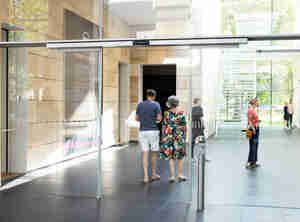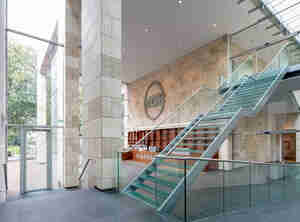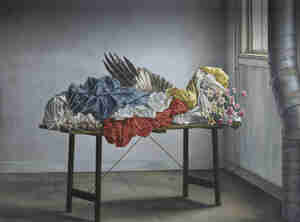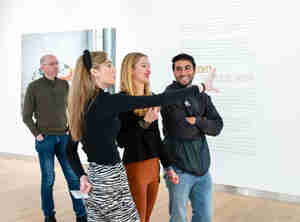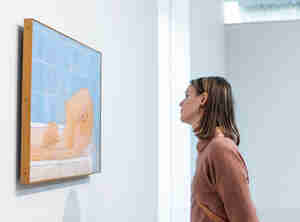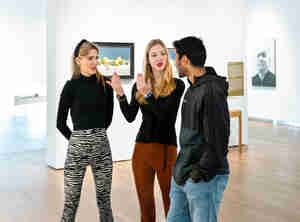- Plan your visit
- See and do
- Collection
- About us

Go back
Ferdinand Erfmann
Cloakroom Attendant, 1952
The oeuvre of Ferdinand Erfmann (1901-1968) pays testament to his predilection for well-rounded women. In the 1920s, this personal sexual-aesthetic preference converged with the internationally ascending re-evaluation of classic, monumental and clear form language in the arts. In the case of Erfmann
...
, this resulted in a highly personal, naïve style.
Despite a range of artistic education, Erfmann cultivated this seemingly elementary painting style. He pays little attention to perspective, anatomy or the rendering of fabrics. He also leaves his figures expressionless, places equal emphasis on all parts of the composition, and develops a colour palette completely his own.
Cloakroom Attendant is perfectly typical within Erfmann’s oeuvre, which often features the world of street/musical theatre and cabaret. Behind the swinging doors of her domain, this woman is a player in an alternative theatre, the tragicomical theatre of the outsider. This is something with which Erfmann was familiar; the artist repeatedly complained of being misunderstood, even after achieving financial success. Erfmann was ashamed of his transvestism and was painfully aware of his outsider position in society due to his ‘eccentric’ preferences.
Long-term loan from the Cultural Heritage Agency.
Text: Boris Ariaens, guide and museum host
Artist
Ferdinand Erfmann
Title
Cloakroom Attendant
Year
1952
Technique
Oil on canvas
Size
70.5 x 50.5 cm (h x w)
Type of object
Painting
Copyright
Uknown
Copyright unknown. We have tried to trace the copyright holders. If you believe you have the copyright, please contact us.
